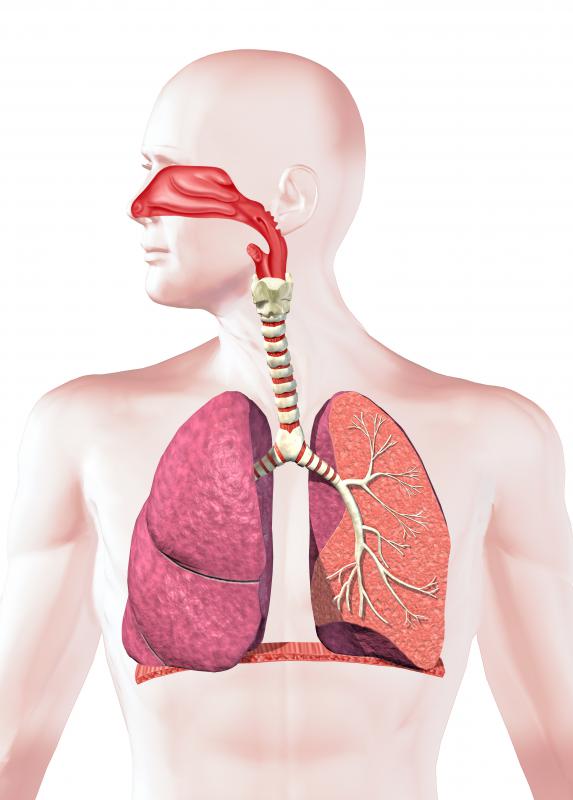At WiseGEEK, we're committed to delivering accurate, trustworthy information. Our expert-authored content is rigorously fact-checked and sourced from credible authorities. Discover how we uphold the highest standards in providing you with reliable knowledge.
What are Symptoms of Lung Cancer?
It would seem like lung cancer would be easy to catch and diagnose due to its symptoms, but this isn’t always the case. Roughly 25% of people with any type of lung cancer may not have any symptoms, and they don’t know they have the condition unless they’re tested for something else or until the cancer spreads further. Then cancer or a growth could be spotted on x-rays, for instance, and hopefully successful treatment could begin. The rest of the people who get lung cancer will have some symptoms they should bring to a doctor’s attention immediately. Even though lung cancer is still extremely difficult to treat, survival rates do improve with early diagnosis.
The principal symptoms of lung cancer include changes to an existent cough, coughing up blood, development of a new cough or a chronic cough. Some people note increased difficulties in breathing, feel short of breath, or experience wheezing. Sometimes a hoarse voice could be one of the symptoms of lung cancer if it occurs suddenly. Occasionally people with lung cancer get continuous bronchial infections or repeated pneumonia because the lungs are damaged.

If cancer spreads to other areas of the body, there may be additional symptoms of lung cancer that aren’t restricted to the lungs. These could include pain, especially if lung cancer spreads to the bones. Alternately, lung cancer in the brain might cause changes in vision, or act like stroke damage and create muscle weakness on one side of the body. From time to time if metastatic lung cancer occurs in the brain it may also create seizures. On the other hand, cancer can spread to other parts of the body and many of the organs may not have any symptoms at all.

There aren’t a plethora of symptoms of lung cancer, but there is certainly a population that is most at risk for getting this cancer, which includes smokers and even former smokers. A fairly striking statistic is that 90% of lung cancer cases occur in smokers, and some medical professionals have even gone so far as to suggest that smoking ought to be considered an early symptom of lung cancer since it so dramatically raises risk for contracting the disease. This does not mean that all smokers get cancer, but they are certainly the population group that is most likely to.

Given the few symptoms, and the fact that some people may not have any, there’s been a continued debate in the medical community about whether it’s prudent to regularly screen smokers for symptoms of lung cancer. Presently, many are against this idea especially when smokers are asymptomatic because it might involve a lot of unnecessary testing. The debate on this issue rages on, but doctors are fairly unified when it comes to the issue of smoking, and almost all strongly recommend that their patients either quit smoking or never start.
AS FEATURED ON:
AS FEATURED ON:




















Discuss this Article
Post your comments